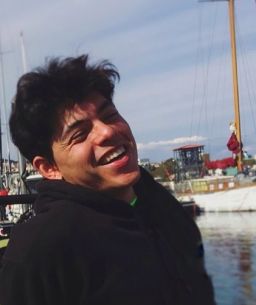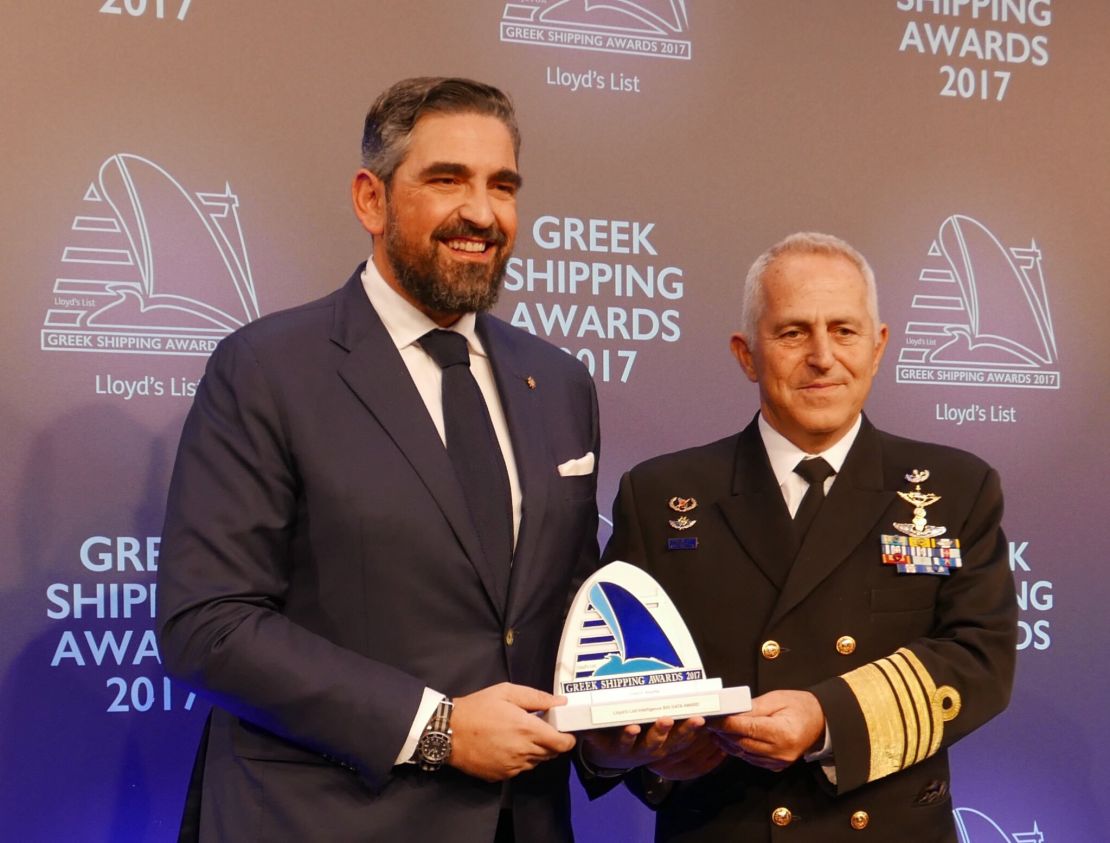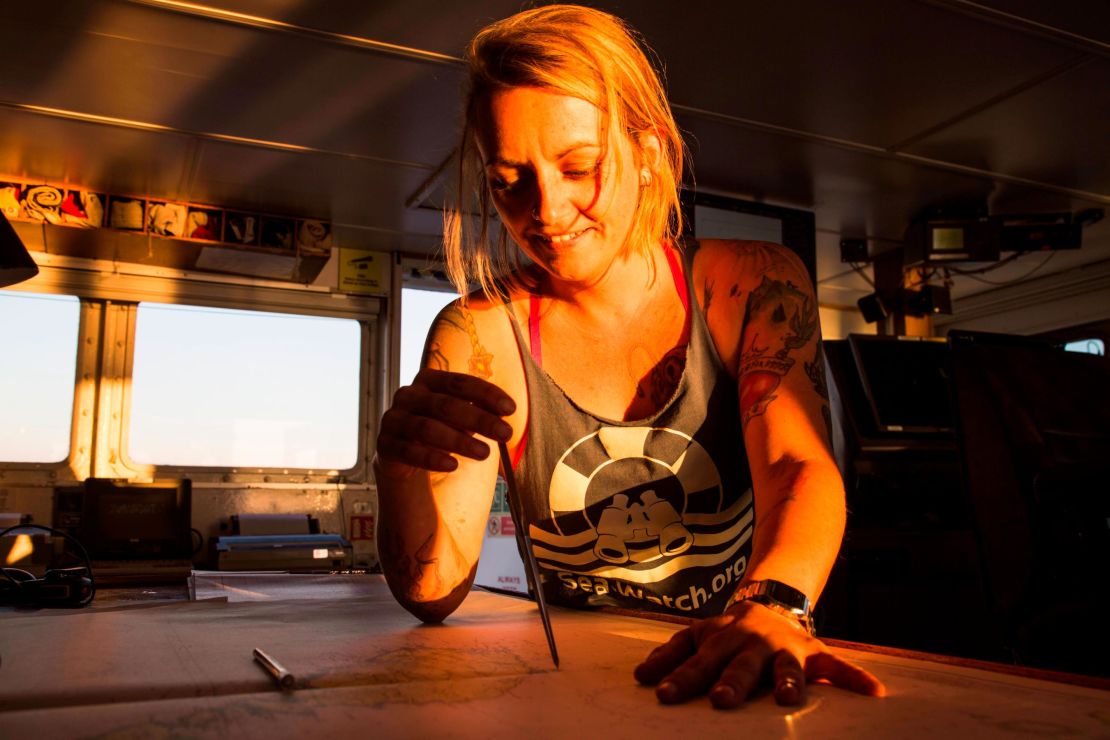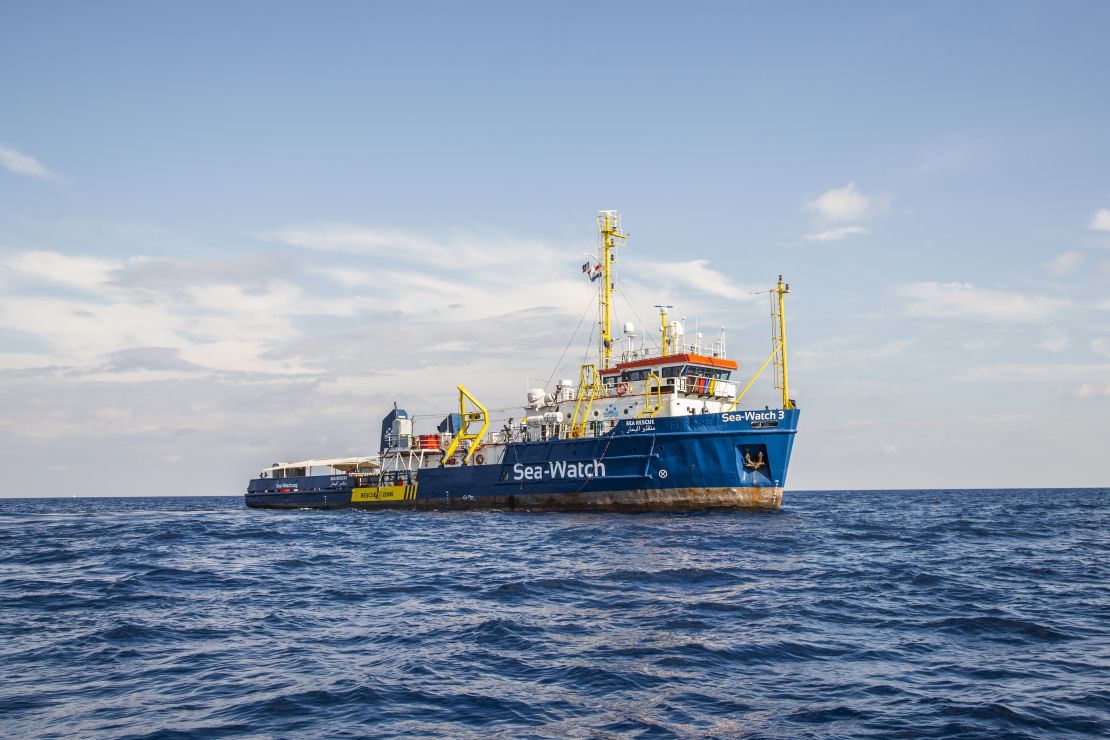For the last seven weeks, Fanny Binder has been traveling back and forth between her Irish home and the Greek island of Chios to knock on the gates of its tiny prison.
It only houses 16 inmates and one of them is her 24-year-old son, Sean.
“When I see him transported in handcuffs, I try to be strong,” Binder told CNN from Dublin, having just returned from her latest visit.
“There are truly bad people out there, and these are kids who haven’t done anything, sitting in jail. It’s not fair.”
Sean Binder was arrested in August with fellow search and rescue volunteers, Sara Mardini and Nassos Karakitsos, for being “actively involved in the systematic facilitation of illegal entry of foreigners in the Greek territory,” according to a police statement.


The aid workers, who are with non-profit organization Emergency Response Centre International (ERCI), maintain their innocence.
While they have not yet been charged with any crime, they face up to 18 months in pre-trial detention while investigations continue.
“There is no evidence,” his mother insisted. “I am confident that, in the end, it will all be good. One day, they will say: ‘There is just no case.’”
Binder’s case is just one example of how both Greece and Italy are actively arresting and prosecuting volunteer rescue teams, as part of a strategy aimed at deterring undocumented immigrants from making the treacherous journey across the Mediterranean.
This policy is having deadly consequences, according to Italian academic Matteo Villa, a research fellow at the Italian Institute for International Political Studies.
Villa has combed through years of Coast Guard data to try and discover whether search and rescue teams act as a “pull factor,” enticing people to make the dangerous journey because they believe they will be rescued.
The Arab Spring of 2011 triggered a wave of migration into Europe. It began with the collapse of the Libyan government under Moammar Gadhafi and spiked in 2015, at the peak of the Syrian civil war.
Europe's migration crisis in 25 photos
“In 2015, there was an increase in non-governmental organizations operating search and rescues. That began a lot of conspiracy theories, such as the ‘pull factor,’ that NGOs were colluding with militias etc,” Villa told CNN.
“But you don’t see any statistical correlation between boat rescues and boat departures,” he said.
In July 2017, Italy, funded by the European Union (EU), rallied Libya’s Coast Guard to aggressively turn back asylum-seekers. The number of arrivals plummeted by more than 70%, as did the number of drownings.
But from June 2018, Villa noticed a spike in deaths even as the flow of arrivals waned.
“This was the new Italian government starting a policy of total deterrence. Ports are closed and no one can do search and rescue,” he explained.
“The graphs are quite stark… A lot more people are dying in the Mediterranean,” Villa said.
He calculated that between June 1 and September 30, 2018 the policies of Interior Minister Matteo Salvini caused a 48% decrease in sea arrivals compared to predecessor Marco Minniti (between July 16, 2017 and May 31, 2018).
According to Villa, they also caused a sharp increase in the number of dead or missing at sea by 147%.
“It’s evidence of the policy impact in real time,” he added.
READ: Dozens of migrants die off Libyan coast
Volunteers take action
More than 1 million refugees and migrants arrived in Europe by sea in 2015, according to UNHCR.
Most used Italy and Greece as gateways to the continent, which left both countries struggling to keep up with the human influx and a stream of rubber dinghies and rickety boats which landed on their shores daily.
Initially, volunteers were welcomed, particularly in Greece where the Coast Guard monitoring the vast Aegean archipelago was overwhelmed with distress calls.
Panos Moraitis, a Greek entrepreneur with a successful marine security business, immediately pitched in to help and ended up founding ERCI.
He flew to the island of Lesbos, where many asylum-seekers were arriving from Turkey, and offered the support of his boats and services.

“I felt I had to assist my country in this time of need. When you see people dying, you feel the need to take action,” he told CNN in September.
“I asked people on the ground, the Coast Guard, the local government, ‘how can I help?’ The Coast Guard said I have to be a registered aid group to help. So, that’s what I did.”
Not one to be deterred, he created ERCI in December 2015 and enlisted numerous volunteer lifeguards.
They helped the beleaguered Coast Guard scan for boats in distress and coordinated with authorities to conduct search and rescue operations.
The volunteers were also required to recover lifeless bodies.
Sean Binder was one of those volunteers, as was Sara Mardini, a Syrian refugee and athlete.
Together with her sister Yusra, Mardini saved the passengers on her sinking dinghy by pushing it to shore by swimming for hours. Yusra, now a UNHCR Goodwill Ambassador, swam competitively in the Rio Olympics and is now in training for Tokyo 2020.
“At first, the situation was completely out of control. In those first days, thousands of people were arriving every day. We were out in the water for 10 hours straight at a time,” said Moraitis.
But he insisted it was all done with the full knowledge and authorization of local authorities, pointing to the numerous call records between his boats and the Coast Guard.
“We were not cowboys. We did not take action without the go-ahead of authorities,” he said.
Investigation and arrest
In March 2016, the EU signed a deal with Turkey to return all “new irregular migrants” – and migrant numbers subsequently began to drop significantly.
ERCI continued to work alongside the Lesbos Coast Guard and their efforts were lauded by Frontex, the EU border protection agency, as well as UNHCR.
But in February 2018, Binder, Mardini and Karakitsos, who is ERCI’s Field Director, were stopped and searched by security officials.
The investigation, which resulted in their vehicles, phones and radios being checked, ultimately led to their arrests in August.
A month later, Moraitis responded to a police request for questioning. He was also arrested and remains in custody for pre-trial detention.
“We were the scapegoats to scare off other volunteers,” he told CNN prior to his arrest.
Rejecting the suggestion that search and rescue groups are enabling illegal immigrants to land in Europe, Moraitis said: “If that’s the case, the Coast Guard should be prosecuted.
“This is insane. There is no indication that a rise in the number of search and rescue teams equals a rise in arrivals.”
READ: Italy’s Salvini calls for 9pm curfew for ‘little ethnic shops.’
Greece is not alone in blaming these volunteers for exacerbating the migration crisis.
The new Italian government, that took power in June, has stepped up its prosecution of search and rescue teams, including the trial of several Tunisian fisherman who helped to tow a sinking ship to the Italian island of Lampedusa.
Under Salvini’s hardline anti-immigration policies, aid groups are no longer allowed to conduct any search and rescue operations.

“Saving lives, the law of the sea, has turned into a crime,” Pia Klemp told CNN. Klemp is a German sea captain who volunteered to lead six rescue missions off the Italian coast with the aid group, Sea Watch. She is now under investigation by Italian authorities for her work.
“I can’t even count how many times I’ve been interrogated now,” she said. “We all want to get out there. We know that people are dying right now – by the hundreds.”

“I was actually glad he was going to Greece”
Sean Binder’s mother is hopeful that the Greek legal system will conclude that there is nothing criminal about his volunteering.”He loved it, absolutely loved it,” Fanny Binder said. “He was exhausted because he was working triple shifts. But he loved it because he felt he was making a change, having an impact, however small.”
She laughed as she recalled how relieved she was to learn about his work, having previously applied to work in both Syria and Yemen.
“I was actually glad he was going to Greece,” she said. “I thought he would be safe, at least.”
Read: Salvini facing investigation as migrants in Italy finally allowed to disembark
For court appearances, Binder is ferried from his cell in Chios to the courthouse on neighboring Lesbos.
Each time, his mother attempts to catch the same ferry as him – just so she can catch a glimpse of him.
“I just think it’s so important to know that we are around and there for him. Once at the harbor, we were able to see him and I could give him a hug again.”
Ever the committed parent, she is now planning to travel back once again next week.
“I’ll be back on Monday, knocking at the gate at 3 o’clock exactly, to see my son.”




























